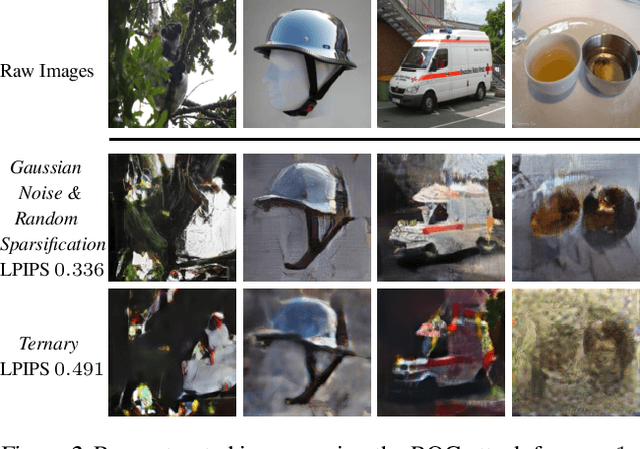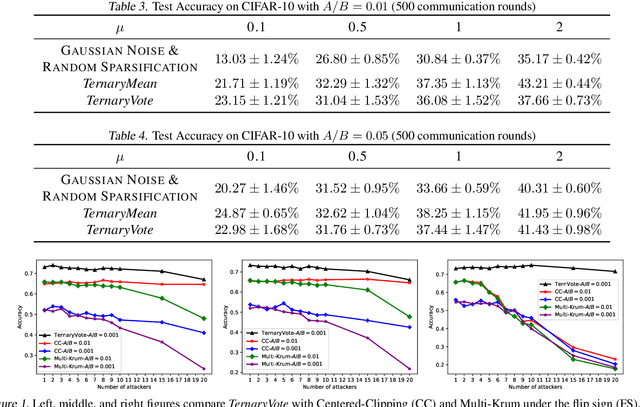TernaryVote: Differentially Private, Communication Efficient, and Byzantine Resilient Distributed Optimization on Heterogeneous Data
Paper and Code
Feb 16, 2024



Distributed training of deep neural networks faces three critical challenges: privacy preservation, communication efficiency, and robustness to fault and adversarial behaviors. Although significant research efforts have been devoted to addressing these challenges independently, their synthesis remains less explored. In this paper, we propose TernaryVote, which combines a ternary compressor and the majority vote mechanism to realize differential privacy, gradient compression, and Byzantine resilience simultaneously. We theoretically quantify the privacy guarantee through the lens of the emerging f-differential privacy (DP) and the Byzantine resilience of the proposed algorithm. Particularly, in terms of privacy guarantees, compared to the existing sign-based approach StoSign, the proposed method improves the dimension dependence on the gradient size and enjoys privacy amplification by mini-batch sampling while ensuring a comparable convergence rate. We also prove that TernaryVote is robust when less than 50% of workers are blind attackers, which matches that of SIGNSGD with majority vote. Extensive experimental results validate the effectiveness of the proposed algorithm.
 Add to Chrome
Add to Chrome Add to Firefox
Add to Firefox Add to Edge
Add to Edge